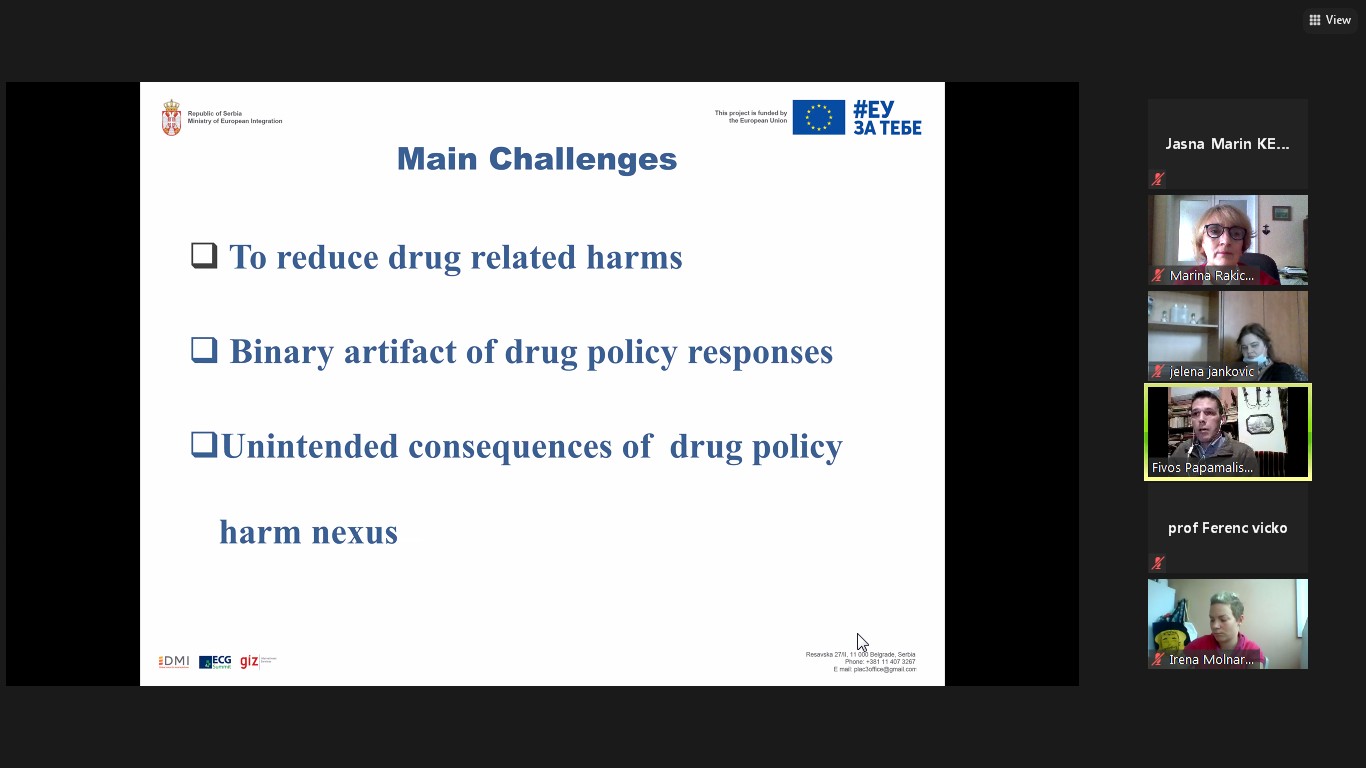In the organisation of Policy and Legal Advice Centre (PLAC III) project, another briefing for media and stakeholders in a series entitled “What European standards bring to Serbia” was held, this time focusing on public health - on prevention and treatment of opiate addicts as well as harm reduction.
In this area, which is part of the Negotiation Chapter 28, PLAC III project has provided support to the Ministry of Health in the establishing unique methodology in the prevention and treatment of opiate addicts as well as in harmonising national legislation with Union acquis.
Due to respect of epidemiological measures, the briefing "What European standards and EU legislation bring to Serbia in the field of drug policy" was held online, on 15 December 2020. In the opening address, the Ministry of Health State Secretary, Prof. Ferenc Vicko said that the Ministry strives to implement a comprehensive drug policy by applying credible scientific approaches while ensuring respect of human rights.
PLAC III project expert Prof. Fivos Papamalis presented the findings of the legal analysis of the harmonisation of Serbian legislation with Union acquis as well as of the analysis of practices applied in the field of drug ddiction, with special emphasis on harm reduction - damage associated with drug addiction (infectious and other diseases). He said that Serbia lacks strategies for the reintegration of opiate addicts, their treatment in local communities, as well as better cooperation with non-governmental organisations.
Papamalis presented the relevant EU legislation - the European Council recommendation of 2003, based on which the prevention together with harm reduction is defined as a public health objective in the European Union. Substitution therapy (methadone and buprenorphine - naloxone) is available in all EU Member States, and in almost all it is accompanied by a psychosocial support programme. Papamalis paid special attention to the analysis of two approaches to the drug addiction problem - the fight against abuse and advocating for drug legalisation. He added that the “global war on drugs has failed" and repressive measures harm public health goals which are to reduce HIV cases and cases of acute overdose.

The head of the Department for psychoactive controlled substances and precursors in the Ministry of Health, dr. Jelena Janković, said that an addiction treatment programme is being implemented in Serbia and that 5,500 opiate addicts are currently registered. Needle and syringe exchange programmes are also being implemented, as well as voluntary counselling and testing on infectious diseases related to intravenous drug use in 26 health institutions and one non-governmental organisation.
Janković said that the Ministry would include recommendations made within the PLAC III project support in the Rulebook on prevention, treatment and harm reduction. She pointed out that one of the priorities was to strengthen cooperation with civil society organisations, in order to jointly direct harm reduction programmes on protecting the health of drug users as well as on reducing discrimination and stigma.
Apart from journalists and Ministry of Health representatives, the briefing was also attended by representatives of the civil society organisations.



